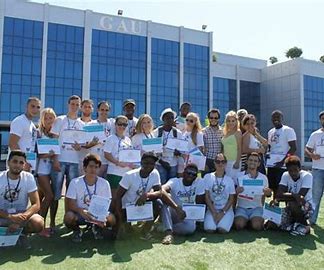Distinguishing between genuine and fake study abroad programs in Nigeria, or any other location, is crucial to ensure a legitimate and successful educational experience. Here are some tips to help you differentiate between authentic and potentially fraudulent study abroad programs:
-
Accreditation and Recognition:
Verify the accreditation of the study abroad program and the institutions they claim to be affiliated with. Authentic programs will have partnerships with recognized universities or educational organizations.
Check if the program is listed on official accreditation bodies' websites or government education portals.
-
Research the Program's Reputation:
Look for reviews and testimonials from past participants. Genuine study abroad programs often have a track record of positive feedback.
Check social media platforms, forums, and online communities for discussions about the program.
-
Official Website and Contact Information:
Authentic programs will have a professional and well-maintained website with detailed information about their offerings, application process, fees, and contact details.
Verify the program's contact information, including email addresses and phone numbers. Legitimate programs provide clear and responsive communication.
-
Transparent Costs and Fees:
Be cautious of programs that demand upfront payments without providing clear information on costs, fees, and what is included in the package.
Authentic programs are transparent about tuition fees, accommodation costs, and other expenses. They will provide a breakdown of the overall cost of the program.
-
Visa Assistance:
Genuine study abroad programs may assist with the visa application process but may not guarantee approval.
.
Verify the accuracy of visa-related information provided by the program.
-
Physical Presence and Office Location:
Legitimate study abroad programs often have physical offices or representatives in the country. Visit their office if possible or check for official addresses.
Be cautious if the program operates exclusively online without any physical presence.
-
Verification of Alumni:
Ask the program for references or contacts of alumni who have participated in their study abroad programs. Reach out to these individuals to inquire about their experiences
Legitimate programs will be willing to connect you with past participants.
-
Consult with Educational Authorities:
Contact relevant educational authorities, embassies, or consulates to verify the authenticity of the program. They can provide information on recognized study abroad opportunities.
-
Seek Professional Advice:
Consult with reputable education consultants or agencies that specialize in study abroad programs. They can guide you on legitimate options and help you avoid potential scams.
Remember that thorough research, verification, and skepticism are essential when evaluating study abroad programs to ensure a safe and authentic educational experience.




